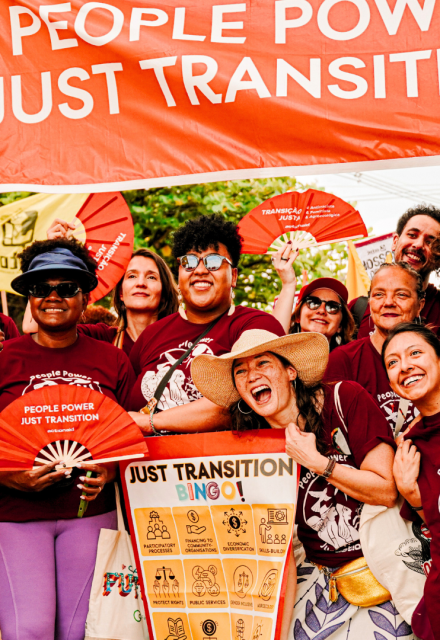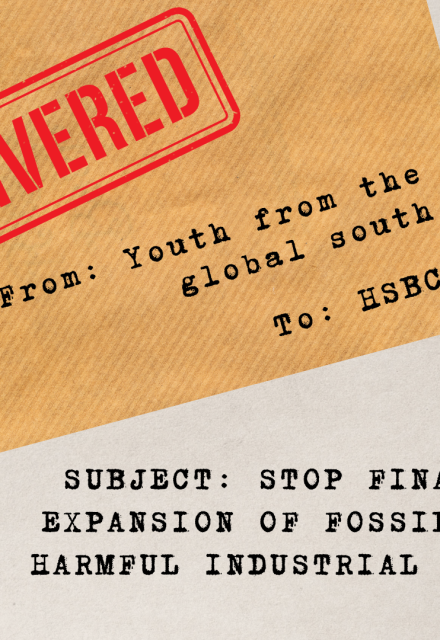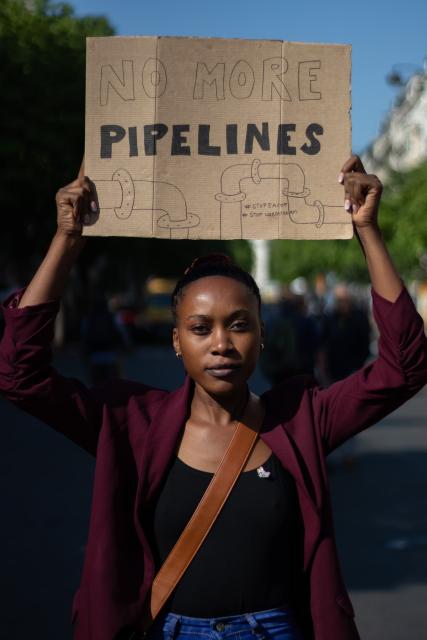HOW CAN A LAND SO RICH LIVE IN SO MUCH LACK?
That was the first thought that struck me as we drove into Iwuokpom, a community in Ibeno LGA of Akwa Ibom State known for its oil, yet shaped by the kind of poverty that clings to the air.
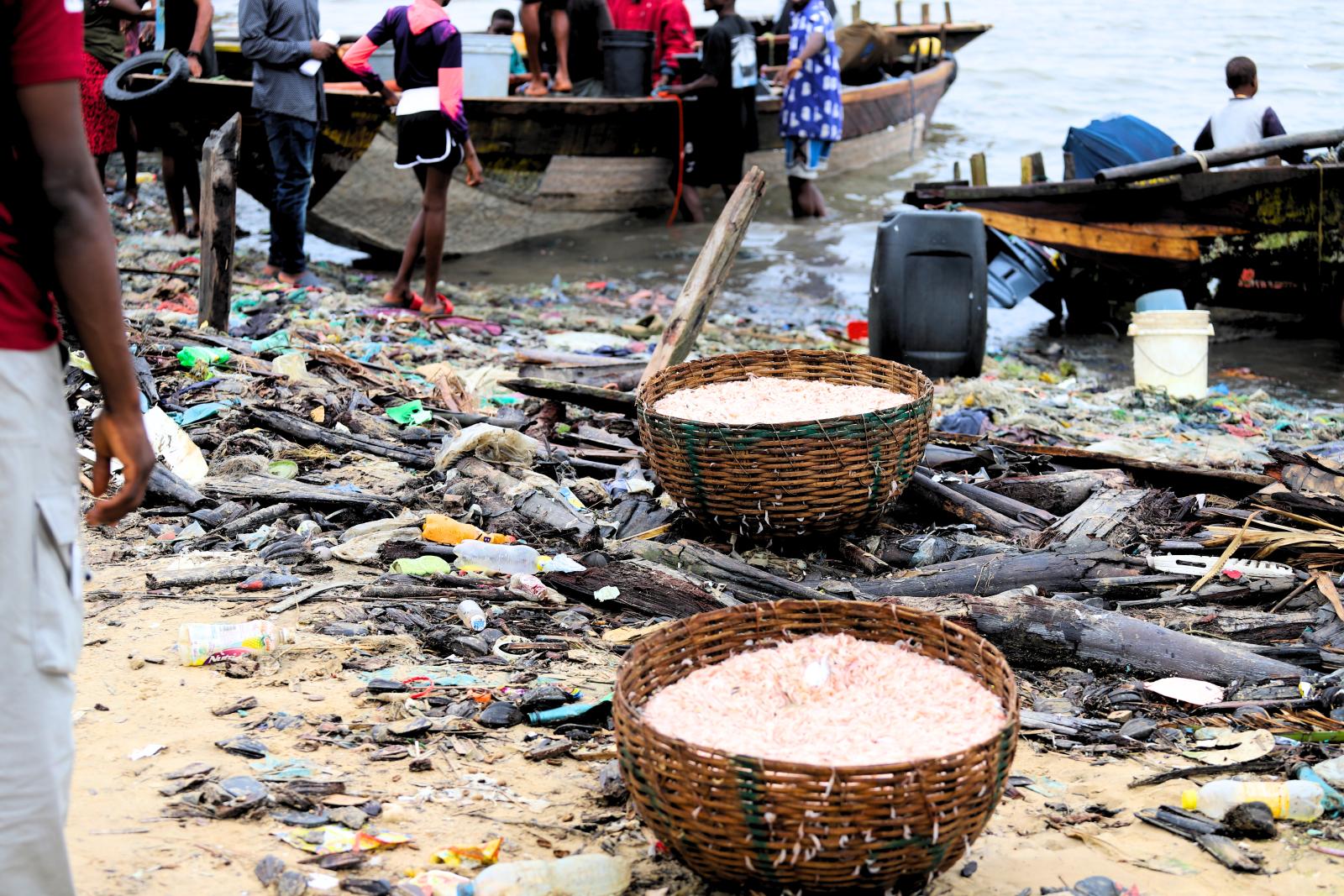
Baskets of freshly-caught crayfish
I had come for a short meeting with a group of young people, a story-capturing session. But nothing could have prepared me for what I saw when I stepped out of the car. The air was thick with the smell of dried fish and crayfish, sharp, salty, and heavy, as though the ocean had settled permanently in the lungs of the town. Children ran barefoot across, with bare bodies as they tried to navigate the hole-filled paths that had been covered with muddy water, their laughter rising to the sky.
Eyes that still held light, even when everything around them spoke of neglect.
Around me, the houses stood quietly, roofed with rusted corrugated iron sheets turned black from years of smoke and oil-stained air. The zinc glistened faintly under the sun, not with the brightness of newness, but with the dullness of decay. The walls, once painted, had long surrendered to the wind and salt, peeled, tired, and weather-beaten. Yet amid all this, the darkened roofs, the smell of crude-soaked soil, and the silence of a place that should have been booming with life, stood faces full of warmth. Young men and women with eyes that still held light, even when everything around them spoke of neglect. They smiled as they welcomed me, their laughter cutting through the heaviness of the air like sunlight through fog.
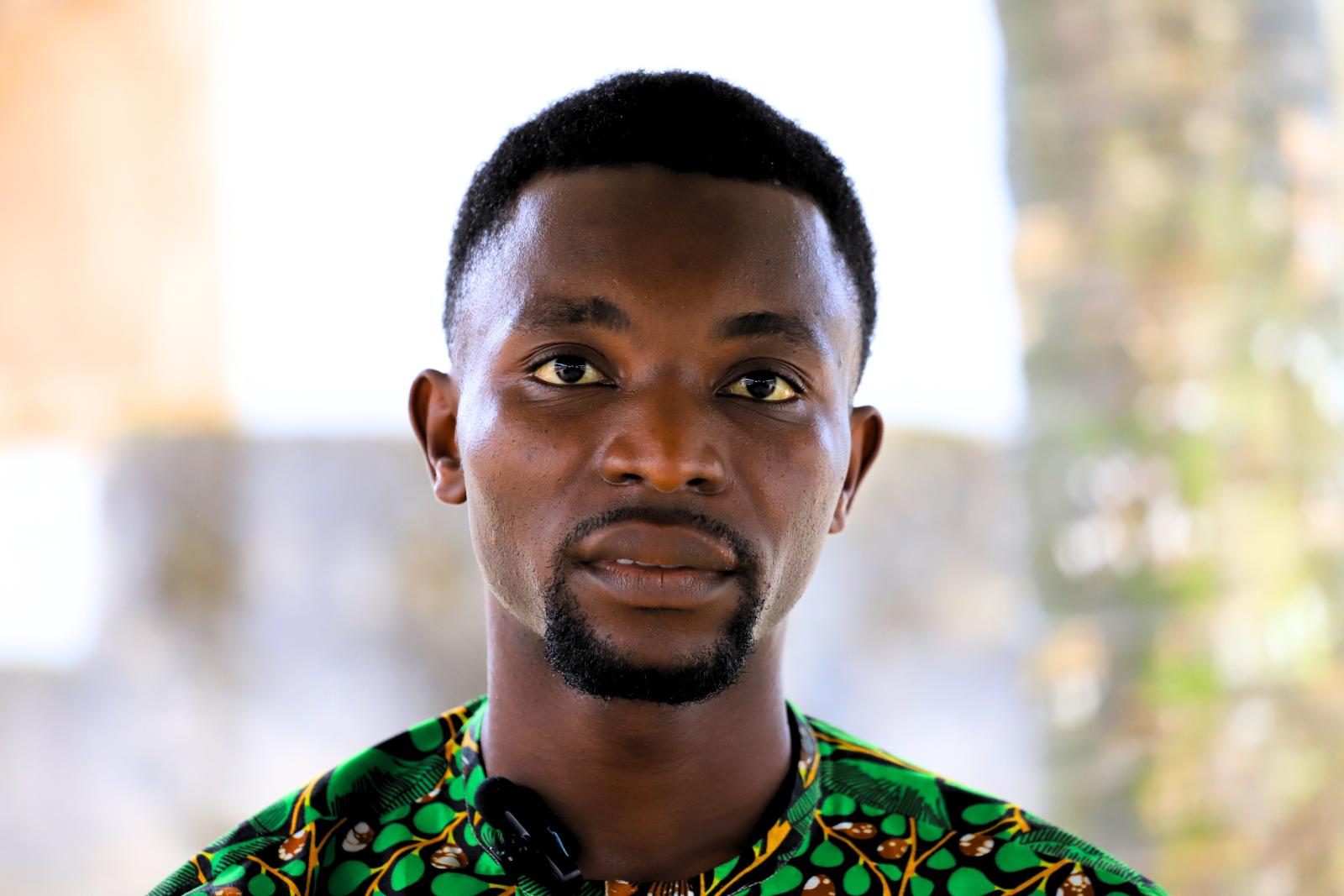
Koffi, President of the Ibeno Youth Advocacy Network
The first person who drew me in was Koffi, a tall, slim young man in his early twenties with calm eyes that carried both the weight and the hope of his people. He spoke softly, yet every word felt deliberate, as though measured against years of watching promises fade. Koffi has been the President of the Ibeno Youth Advocacy Network (IYAN) for two years, a group of passionate young people determined to rewrite the story of their community. As we walked toward the beach, where their meeting was to be held, the salty wind brushed against our faces. The sound of waves mixed with the chatter of young people joining us along the way, some holding notepads, others with phones ready to record the discussion.
They said they’d give us jobs. They said they’d build hospitals and schools. But what they left us with is sickness, struggle.
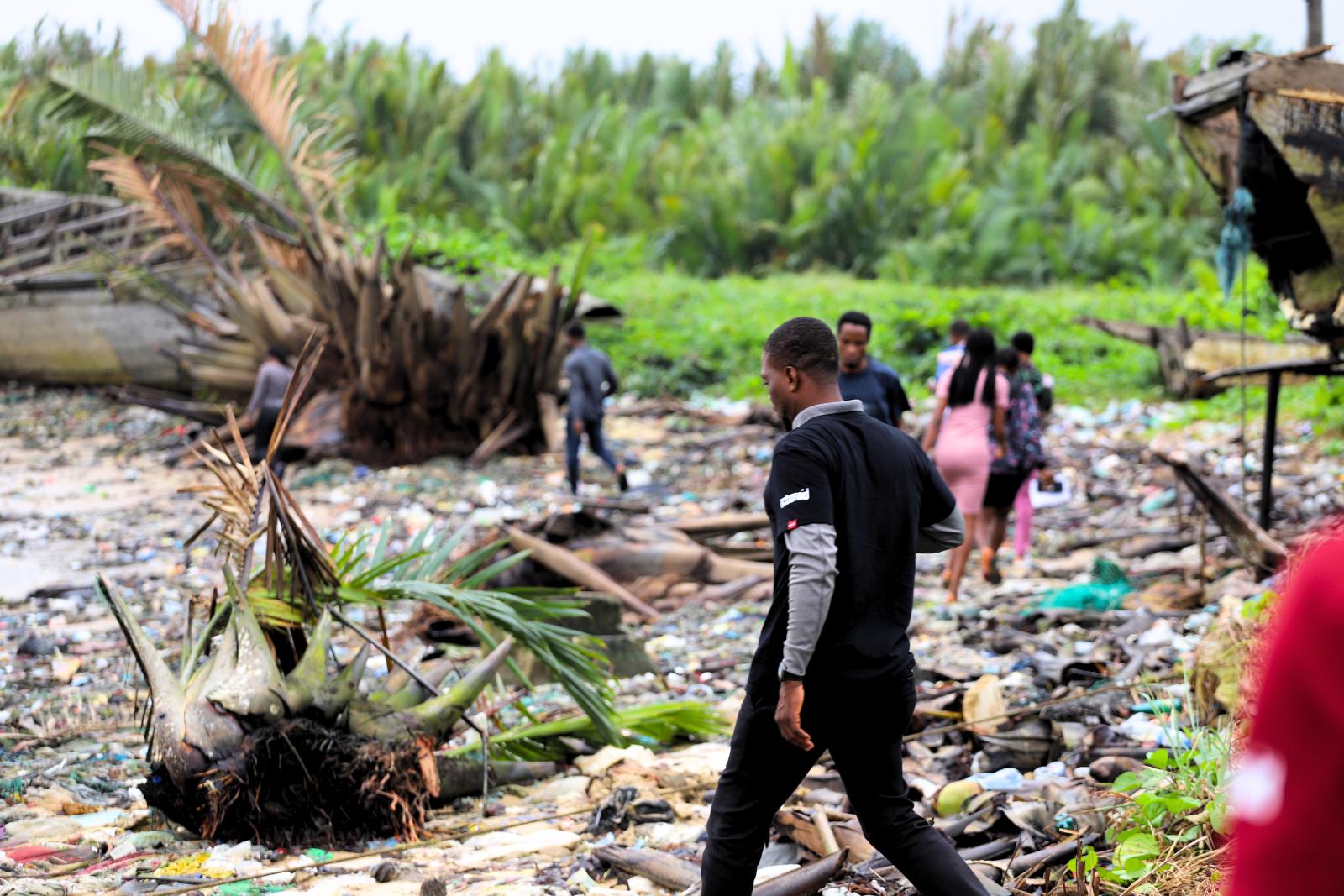
The realities of living in Iwuokpom, Ibeno
He began to share their story, the daily realities of living in an oil-rich land that has brought them everything except prosperity. He spoke of youth unemployment. Of the farms that can no longer yield crops because the soil has lost its strength. Of families forced to fetch water from polluted streams.
"The oil companies often call some of our people and compensate individuals without focusing on the entirety of the community. Our land, our water, our environment is often destroyed, especially when there’s a spillage. They said they’d give us jobs. They said they’d build hospitals and schools. But what they left us with is sickness, struggle. I do not believe that a land as rich as ours can be poor with basic amenities."
PETROLEUM INDUSTRY ACT (PIA) of 2021
As the waves rolled in behind him, he told me about how the youths began to organise, first in frustration, then with purpose. They began holding meetings and gathering in small groups to discuss their rights and what they can do as young people to make their communities better. They soon discovered the Petroleum Industry Act (PIA) of 2021, a law that requires oil companies to contribute 3% of their annual operating expenses to the development of host communities, such as Ibeno.
We realised we had the right to demand, not beg, for what belongs to us.
“That law gave us something to stand on,” Koffi said, his voice rising a little.
"We realised we had the right to demand, not beg, for what belongs to us. The Act says they must provide for healthcare, water, and schools. So we told them: it’s time to do it.”
What began as a handful of determined youths soon grew into a movement. The Ibeno Youth Advocacy Network became their collective voice, a platform through which they challenge the neglect of oil explorers and remind both government and corporations that development is not charity; it’s a right.
As he spoke, I could see it clearly, the blend of anger and hope that fuels many young Nigerians.
As the conversation continued, their voices softened when they spoke of a community across the river, Okoritak. They told me it was a small settlement cut off from the rest of Ibeno, a place where people still drink from an abandoned oil well. The words hung in the air, heavy and unbelievable. They could see the shock in my eyes, and they nodded to reaffirm what they had been saying.
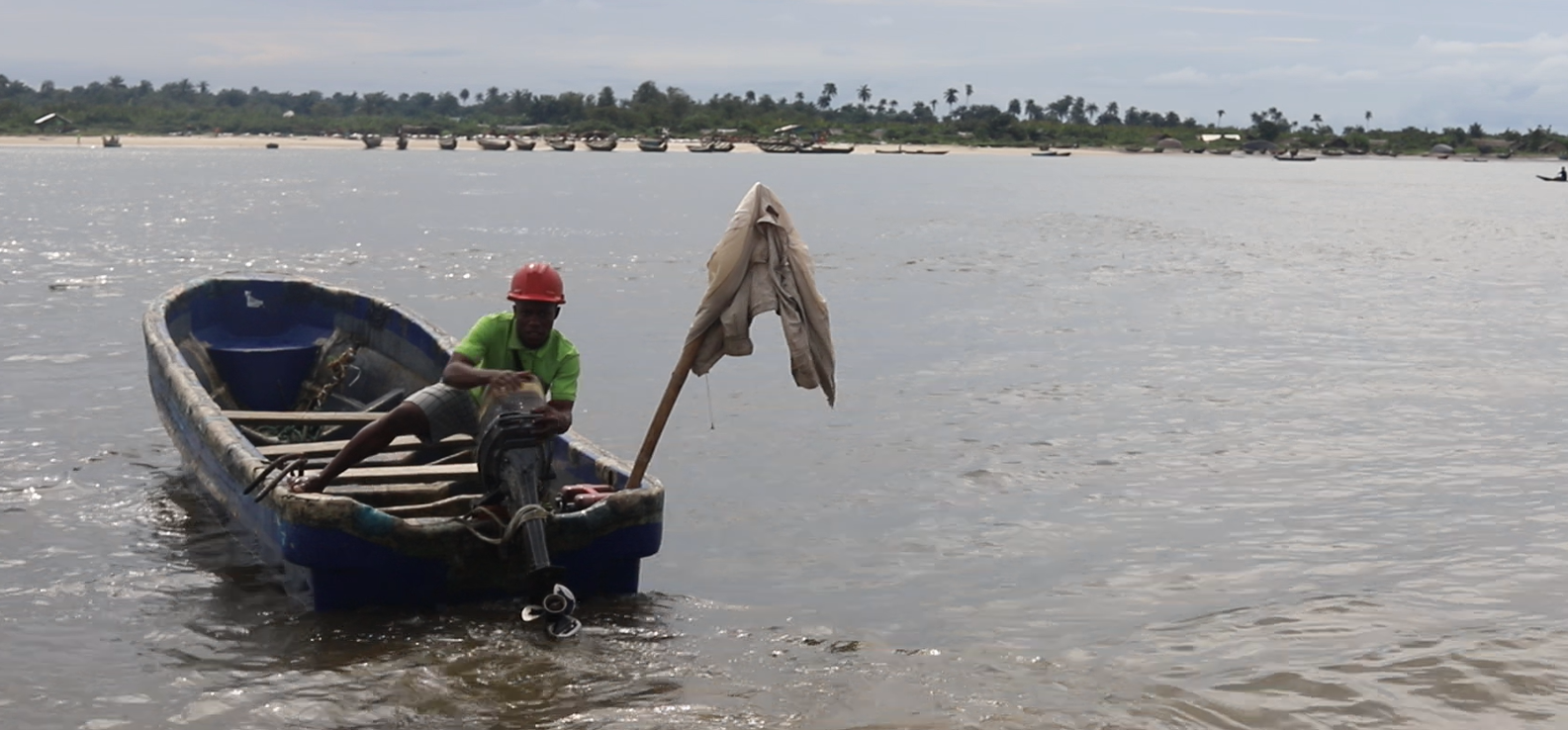
Boats used to ferry people to Okoritak
I leaned closer, wanting to understand.
They described how to get there, how I would have to take a wooden ferry across the river, a slow, creaking vessel that takes about ten minutes to make the journey. The young men said the ride feels longer on windy days, when the waves slap against the sides and the air smells of salt and fuel.
“There’s no hospital there,” Koffi said. “No clinic. No good school either.” His eyes drifted toward the horizon as though he could see Okoritak from where we stood.
The cost, The risk, The exhaustion !!!
As they spoke, I imagined it, a village where mothers fetch water from rusted pipes leaking from a forgotten oil well, their buckets carrying traces of what once poisoned the land. I imagined a pregnant woman going into labour at midnight, her family frantically looking for a boatman to ferry her across the river to the other side for help.
I thought about the danger of that journey, the darkness of the river at night, the unstable wooden planks, and the trembling torchlight guiding the way. Even in daylight, the thought of crossing just to buy a bag of pure water felt like a struggle, the cost, the risk, the exhaustion.
The more they spoke, the more my curiosity turned into resolve.
I wanted to see Okoritak for myself, to look into the faces of the people who live there, to understand how they survive, and to tell their story the way it deserves to be told.
Change begins the moment people decide to speak, to act, and to believe again.
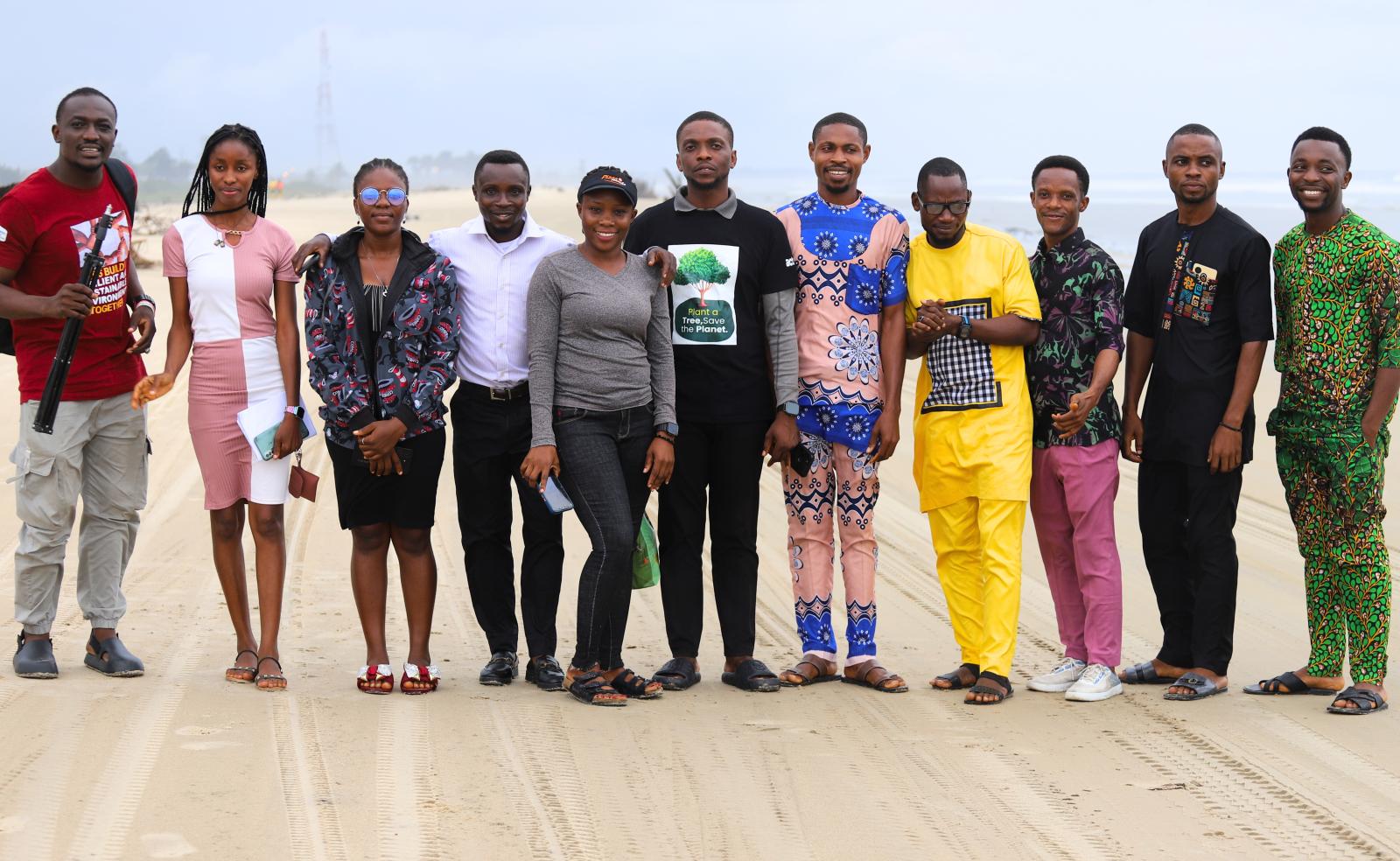
Koffi and some members of the Ibeno Youth Advocacy Network
But as we concluded the meeting that day, and I walked back to my hotel, one thing that kept ringing in my mind was that even though their stories are of pain, it is also ones of persistence.
Young people are creating a voice for themselves, one that speaks for clean water, healthcare, and dignity. Through community meetings, advocacy visits, and collaborations with local leaders, they are showing that real change does not always begin in big offices or with powerful titles, but in small, determined hearts. I realised that what they are doing is not just advocacy. It is the reclamation of their voice, their land, and their future. The Ibeno Youth Advocacy Network is not waiting for rescue.
They are becoming the rescuers. They are teaching their community and the country that even in the most neglected places, change begins the moment people decide to speak, to act, and to believe again.
I didn’t just witness a movement. What I witnessed was a generation rebuilding hope...
And as I write this, I remember their faces, lit by the golden evening sun, and I know that I didn’t just witness a movement. What I witnessed was a generation rebuilding hope, one ripple at a time, making us believe that the change we want can be possible if young people can organise and mobilise with one voice.


